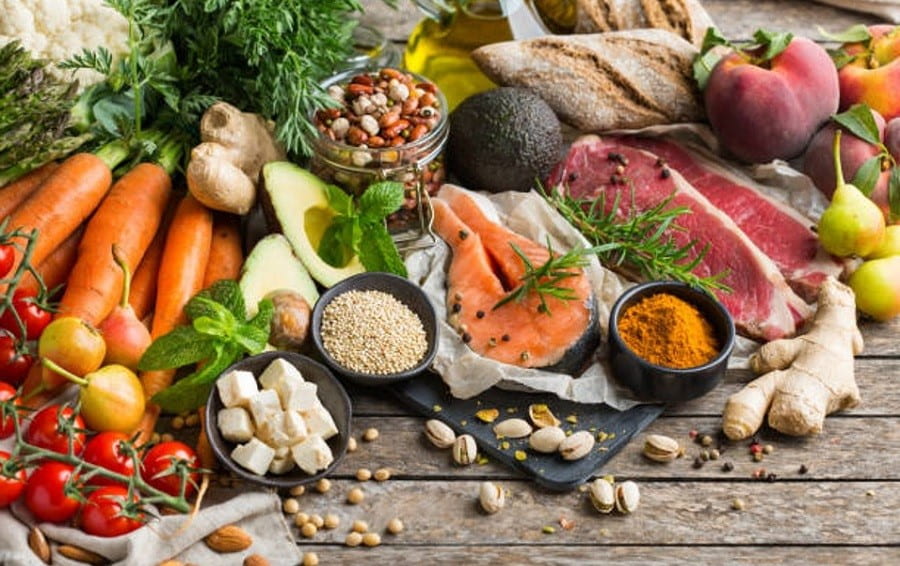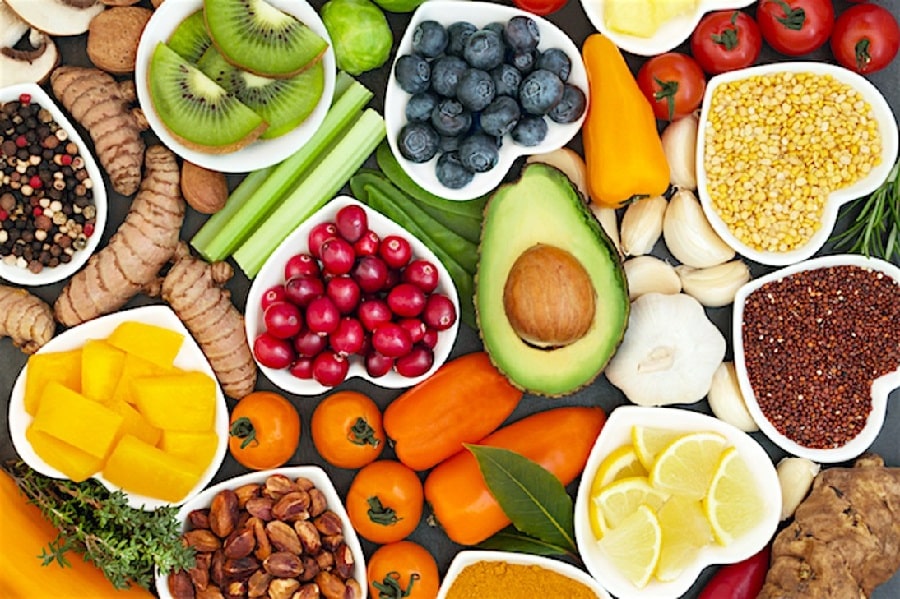Introduction
The vegan diet has become very popular in recent years due to motivations tied to health, environmental concerns, and ethics. It is appealing to people looking for a compassionate and sustainable approach to nutrition. This diet includes a plant-based diet but strictly excludes all animal products, including honey, eggs, and other animal-derived ingredients. It however includes fruits, vegetables, nutritious grains, legumes, and plant-based proteins.
A vegan diet offers many options for those who want to embrace a lifestyle that aligns with their values. Individuals choose a vegan diet based on personal values, dietary preferences, and health objectives.
Aside from health benefits, the vegan diet offers beauty advantages by emphasizing plant-based foods abundant in vitamins, minerals, and antioxidants. Consequently, this can result in clearer skin, reduced inflammation, and a heightened natural glow. Additionally, the diet’s high fiber content supports healthy digestion and contributes to effective weight management.
Also Read: Types Of Healthy Diet: Which One Fits Your Lifestyle?

In this article, we’ll explore the world of vegan nutrition, exploring its basic principles, potential health benefits, and practical tips to help you succeed on your plant-based journey. Join us as we embark on a transformative exploration of vegan nutrition and discover how it can nourish not only our bodies but also our hearts and the planet we call home.
Ethical Motivation for Choosing a Vegan Diet
Many people adopt a vegan diet due to compassion for animals and environmental concerns about animal farming. They adopt this dietary choice in alignment with their values. Their values revolve around non-violence and kindness towards animals. They avoid the consumption or use of animal products. This avoidance is due to the perceived cruelty and exploitation associated with factory farming and animal testing.
Additionally, environmental ethics play a significant role in motivating veganism. Many people express concerns about the environmental effects of livestock farming. These effects include deforestation, greenhouse gas emissions, and water pollution. They believe that a vegan lifestyle reduces their carbon footprint and contributes to a more sustainable and environmentally friendly world. As a result, many vegans are committed to minimizing harm to animals. They also aim to protect the planet by abstaining from animal products. Additionally, they extend their choices to include animal-free clothing and personal care products.
Vegan Diet Plan for a Typical Day
It’s important for individuals on a vegan diet to ensure they meet their nutritional needs. They should plan meals carefully and consider potential nutrient deficiencies, such as vitamin B12, iron, calcium, omega-3 fatty acids, and iodine. However, working with a registered dietitian who specializes in vegan nutrition can be helpful in creating a well-balanced and nutritious vegan diet.
Breakfast:
- Overnight oats made with rolled oats, almond milk, and chia seeds, and topped with fresh berries, sliced bananas, and a sprinkle of nuts.
- A side of avocado toast on whole grain bread, topped with tomato slices, lemon juice, and a pinch of salt and pepper.
- A cup of herbal tea or plant-based milk like almond or soy milk.
Snack:
- A handful of mixed nuts and seeds.
- A piece of fresh fruit like an apple or orange.
Lunch:
- A colorful salad with a variety of greens, such as spinach or kale, topped with cherry tomatoes, cucumber slices, shredded carrots, and sliced bell peppers. Drizzle with a homemade dressing made from olive oil, lemon juice, and Dijon mustard.
- A serving of protein-rich legumes like chickpeas or lentils, seasoned with herbs and spices.
- A side of quinoa or brown rice for added fiber and nutrients.
Afternoon Snack:
- Carrot sticks or sliced bell peppers served with hummus for dipping.
Dinner:
- A hearty vegetable stir-fry with tofu or tempeh, including a mix of colorful vegetables like broccoli, bell peppers, snap peas, and mushrooms. Additionally, season with soy sauce, garlic, and ginger for flavor.
- Serve the stir-fry over a bed of brown rice or quinoa.
- Steamed or roasted vegetables like asparagus or Brussels sprouts on the side.
Dessert:
- A small bowl of dairy-free yogurt topped with fresh berries and a sprinkle of granola or crushed nuts.
- You can customize your vegan diet menu based on your preferences and nutritional needs.
Pros & Cons of a Vegan Diet
Pros of a Vegan Diet:
- Health Benefits: A well-planned vegan diet can be rich in fiber, vitamins, minerals, and antioxidants, which are essential for overall health. Furthermore, it has been associated with lower risks of heart disease, high blood pressure, type 2 diabetes, and certain types of cancer.
- Weight Management: A vegan diet, when focused on whole plant-based foods, can be lower in calories and saturated fats, which may aid in weight management and promote a healthy body weight.
- Environmental Sustainability: Animal agriculture is a significant contributor to greenhouse gas emissions, deforestation, and water pollution. By adopting a vegan diet, individuals can reduce their environmental footprint and contribute to sustainable practices.
- Ethical Considerations: Many people choose a vegan lifestyle due to concerns for animal welfare and a desire to reduce harm to animals. Also, it aligns with promoting compassion and respect for all living beings.
- Variety and Culinary Exploration: Adopting a vegan diet encourages individuals to explore a wide range of plant-based foods, flavors, and cooking techniques. Moreover, it leads to culinary creativity and increased diversity in meals.
Cons of a Vegan Diet:
- Nutrient Considerations: Vegan diets may lack essential nutrients like B12, iron, calcium, omega-3, and iodine. Plan carefully, and consider supplements or fortified foods to prevent deficiencies.
- Potential Social Challenges: In social settings, it can be challenging to find vegan options or navigate dietary restrictions. Therefore, dining out or attending events may require communication and preparation to ensure suitable food choices are available.
- Limited Food Availability: Depending on the geographic location, availability and variety of vegan food options may be limited. Moreover, access to plant-based alternatives and specialized products may vary, making it important to be resourceful and adaptable.
- Learning Curve and Education: Switching to a vegan diet may require a learning curve, especially for those who are new to plant-based eating. Therefore, understanding proper nutrition, ingredient labels, and meal planning is essential to ensure a well-balanced and nourishing vegan diet.
- Individual Variations: Nutritional needs vary, consider preferences. Listen to your body, and consult professionals if necessary.
As with any dietary choice, it’s crucial to consider individual factors, goals, and personal health needs when deciding to follow a vegan diet. Therefore, work with a registered dietitian who specializes in vegan nutrition while following a vegan lifestyle. He/She can provide guidance and support to ensure nutritional needs are met
Dos & Don’ts of a Vegan Diet
Dos of a Vegan Diet:
- Emphasize Plant-Based Whole Foods: Focus on consuming a wide variety of fruits, vegetables, whole grains, legumes, nuts, and seeds. Because, these nutrient-dense foods provide essential vitamins, minerals, fiber, and antioxidants.
- Incorporate Plant-Based Protein Sources: Include protein-rich foods such as legumes (beans, lentils, chickpeas), tofu, tempeh, seitan, quinoa, and edamame to meet your protein needs. Moreover, combining different plant-based protein sources throughout the day can ensure you get all essential amino acids.
- Prioritize Healthy Fats: Include sources of healthy fats like avocados, nuts, seeds, and plant-based oils (olive oil, coconut oil) in your diet. These fats provide essential fatty acids and can support overall health.
- Pay Attention to Vitamin B12: Vitamin B12 is mainly found in animal-based products. It is important for vegans to ensure adequate intake through fortified foods or supplements. Vitamin B12 is crucial for nerve function and the production of red blood cells.
- Plan Meals and Snacks: Meal planning can help ensure a balanced and varied vegan diet. Aim for a mix of macronutrients (carbohydrates, protein, and fats) in each meal. Have nutrient-dense snacks readily available.
Don’ts of a Vegan Diet:
- Avoid Animal-Derived Foods: Exclude all animal-derived products from your diet, including meat, poultry, fish, seafood, dairy, eggs, and honey.
- Beware of Processed Vegan Foods: While convenient, heavily processed vegan foods can be high in added sugars, unhealthy fats, and sodium. Therefore, limit your consumption of processed vegan meats, cheeses, and desserts. Choose whole food options whenever possible.
- Be Mindful of Nutrient Deficiencies: Pay attention to nutrients that may be lacking in a vegan diet, such as vitamin B12, iron, calcium, omega-3 fatty acids, and iodine. Additionally, work with a registered dietitian to ensure you meet your nutritional needs through a well-planned vegan diet or appropriate supplementation.
- Don’t Rely Solely on Highly Refined Carbohydrates: While some vegan foods like white bread, pasta, and sugary snacks may be technically vegan, they are low in nutrients and can lead to imbalances in blood sugar levels. Focus on whole grains and unrefined carbohydrates for sustained energy.
- Avoid Neglecting Protein Sources: Protein is essential for various bodily functions. Ensure you consume an adequate amount of plant-based protein to meet daily protein needs and support muscle maintenance and repair.
Personalize your vegan diet based on your individual needs, preferences, and any specific health considerations. Consulting with a registered dietitian who specializes in vegan nutrition can provide valuable guidance and support.
Conclusion
Adopting a vegan diet offers a multitude of benefits for individuals and the planet. From improved health and weight management to reduced environmental impact and ethical considerations, a plant-based lifestyle can have far-reaching effects. By focusing on a well-planned vegan diet, individuals can enjoy a wealth of vitamins, minerals, and antioxidants essential for optimal health. However, it is important to be mindful of potential nutrient deficiencies and seek proper guidance to ensure a well-balanced and nourishing vegan diet.
With an abundance of delicious plant-based options available, a vegan diet opens doors to culinary exploration. It promotes a compassionate approach to both personal well-being and the welfare of animals. Embracing a vegan lifestyle is a powerful choice. It not only benefits individuals but also contributes to a more sustainable and compassionate world.


